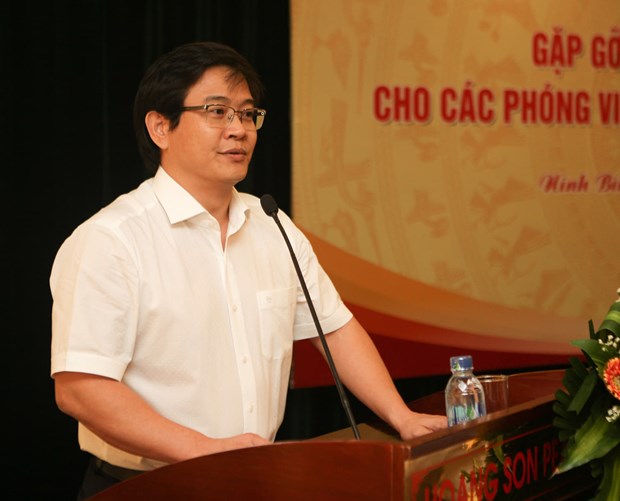.jfif) Opinion
Opinion

Head of the Primary School Department under the Ministry of Education and Training Thái Văn Tài told the Vietnam News Agency about changes in regulations relating to the organisation, management and operation of primary schools together with the obligations and responsibilities of teachers and students.

|
| Head of Primary School Department under the Ministry of Education and Training Thái Văn Tài. VNA/VNS Photo |
Head of the Primary School Department under the Ministry of Education and Training Thái Văn Tài told the Vietnam News Agency about changes in regulations relating to the organisation, management and operation of primary schools together with the obligations and responsibilities of teachers and students
The Ministry of Education and Training has issued a new circular on primary schools. The circular will take effects from October 20, replacing the current one from 10 years ago. Among changes of the new circular is the regulation “teachers are not allowed to criticise students in public, for example in front of class/school members or in meetings between students’ parents and teacher.” Why is this regulation in place?
The regulation aims to fix the limitations of discipline applied previously and to respect students’ rights. It is for their progress and suitable for modern educational views.
If students make mistakes during their schooling, they will get discipline measures depending on their violation levels such as warnings, be assisted to fix the mistakes or have their parents informed about their children’s mistakes so the family can help the students fix their mistakes.
Teachers must not criticise students in public in front of other members of their class/school or in the public meeting between parents and teachers.
It is expected that the regulation will help offer more effective education as students are respected, their privacy is ensured and no public reprimands means the students will not feel ashamed in front of their peers. Thus, students will see school as a safe place and be willing to open and share their feelings with teachers, as well as listen to teachers’ instructions. Teachers will co-operate with the students’ parents in helping students correct their mistakes and make progress.
The new general education programme is being implemented first in primary schools. Is there any connection between the new general education programme and the new regulations for primary schools?
The new general education programme has been launched this school year with new textbooks designed to promote teachers’ activeness and creativity. Schools are allowed to develop their own teaching plans to fit their students and their conditions as the ministry only regulates the minimum time needed to complete the programme in a school year, not a week-based curriculum like previously.
In previous programmes, there were lessons in textbooks, each lesson was usually taught in 30-45 minutes and students were supposed to achieve particular goals after each lesson.
In the new programme, every single teacher or school can develop their own teaching plans as long as the plans are in line with the ministry’s teaching frame and education targets of localities. Schools are also allowed to use advanced education and training methods/approaches/forms suitable to their students and conditions.
So, different schools could have different teaching options so they could take the initiative to respond to any situation caused by objective factors, for example, diseases or natural disasters.
Under the new primary school regulations, teachers are also allowed to develop and implement their own teaching plans and they will be responsible for what they teach, how they teach and how they assess students. The teachers can decide the teaching equipment or apply information technology in their work.
The new primary school regulations are expected to create favourable conditions for schools to effectively meet the requirements of the new general education programme.
Does the circular on new primary school regulations deal with the issue over the sales and use of reference books while students’parents are very concerned over compulsory textbooks and reference books (optional)?
The Ministry of Education and Training has issued instructions over the use of textbooks and reference books in schools.
In the former circular on primary school regulations, Article 28 stated that textbooks are compulsory while reference books are optional. No organisations or individuals can force students to buy reference materials.
In the new circular on primary school regulations, the ministry clarifies principles to ensure students’ rights, schools' obligations and local authorities' supervisory role.
Textbooks used at specific primary schools are those proved by Minister of Education and Training and selected by provincial People’s Committees. Students and teachers at the schools use the textbooks for their learning and teaching programme.
The schools have to provide sufficient information about the textbooks and teaching equipment for students’ families.
The schools are encouraged to use extra reference materials to improve teaching quality but no organisations nor individuals can force students to buy reference books.
In the new circular, school principals must manage and select reference materials for use in the schools. So, if there is any violation relating to the use of textbooks and reference books in the school, the principals would be responsible. VNS




